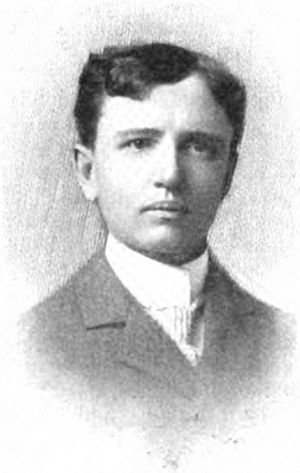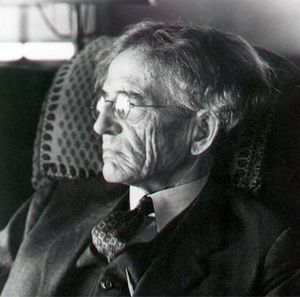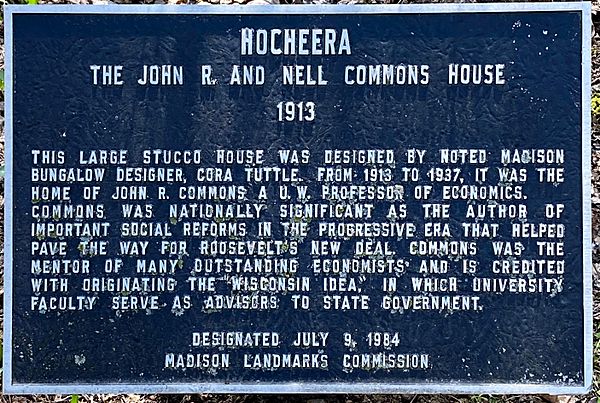John R. Commons facts for kids
Quick facts for kids
John R. Commons
|
|
|---|---|

From The Independent, Volume 63 (1907)
|
|
| Born | October 13, 1862 |
| Died | May 11, 1945 (aged 82) |
| Nationality | American |
| Field | Institutional economics, labor history |
| School or tradition |
Institutional economics |
| Doctoral advisor |
Richard T. Ely |
| Doctoral students |
Alvin Hansen, Edwin E. Witte |
| Influences | Henry Dunning Macleod |
John Rogers Commons (born October 13, 1862 – died May 11, 1945) was an important American thinker. He was an economist who studied how rules and organizations affect the economy. He was also a progressive and a historian of workers' rights. Commons taught at the University of Wisconsin–Madison.
Early Life and Ideas
John R. Commons was born in Hollansburg, Ohio, on October 13, 1862. His family was very religious. This led him to care deeply about fairness and justice for everyone from a young age.
Even though he struggled as a student, he was very determined and curious. This helped him graduate from Oberlin College. After college, he studied at Johns Hopkins University. He later taught at Oberlin, Indiana University, and Syracuse University.
In 1899, Syracuse University let him go because they thought his ideas were too radical. But in 1904, he began teaching at the University of Wisconsin.
Commons believed in combining Christian values with new studies like sociology (the study of society) and economics (the study of money and resources). He wrote a book called Social Reform and the Church. He also supported the Prohibition Party, which wanted to ban alcohol. Later in his career, his work became more focused on facts and less on religious views.
Making a Difference: His Career
John Commons is famous for his ideas about how groups and governments work together. He thought these "collective actions" were key to understanding economics. Commons believed that new laws could create positive social change.
He was a strong supporter of civil rights. He believed that African Americans should have the right to vote. He even suggested using the Thirteenth Amendment to the Constitution to make sure Southern states allowed them to vote.
Commons helped create important laws for the state of Wisconsin. For example, he wrote the law that started Wisconsin's worker's compensation program. This was the first program of its kind in the United States. It helped workers who got hurt on the job.
In 1906, Commons helped start the American Association for Labor Legislation (AALL). This group worked to improve working conditions and protect workers' rights.
He also contributed to The Pittsburgh Survey in 1907. This was a big study of a city to understand its social problems. One of his students, John A. Fitch, wrote an important book from this study called The Steel Workers. Another student, Edwin E. Witte, later became known as the "father of social security."
Commons was a leader in supporting proportional representation in the United States. This is a way of voting where political parties get a number of seats in government that matches the percentage of votes they receive.
He also did major studies on the history of labor unions in the United States. Starting in 1910, he put together a huge collection of original documents about the American labor movement. After that, he wrote a detailed history called History of Labor in the United States.
In 1934, Commons published his book Institutional Economics. In this book, he explained that "institutions" are like rules or organizations. He believed that these collective actions, along with disagreements between groups, shaped the economy. He thought that understanding how society controls individual actions was important for economics.
His Legacy
John R. Commons passed away on May 11, 1945.
Today, his work on labor history is seen as just as important as his ideas on institutional economics. He also helped us understand the history of economic thought.
At the University of Wisconsin in Madison, there are rooms and clubs named after him. This shows how much he is respected there.
Commons guided many future economists. He is also known for helping create the "Wisconsin Idea." This idea means that university professors should use their knowledge to help the state government.
His old home, The John R. and Nell Commons House, is now a historic landmark.
See also
 In Spanish: John Rogers Commons para niños
In Spanish: John Rogers Commons para niños
 | John T. Biggers |
 | Thomas Blackshear |
 | Mark Bradford |
 | Beverly Buchanan |



